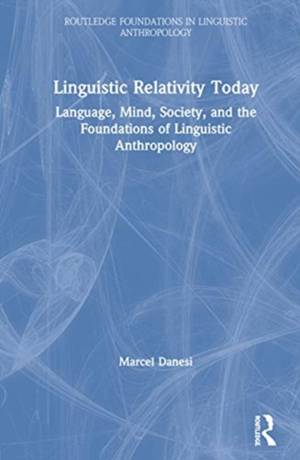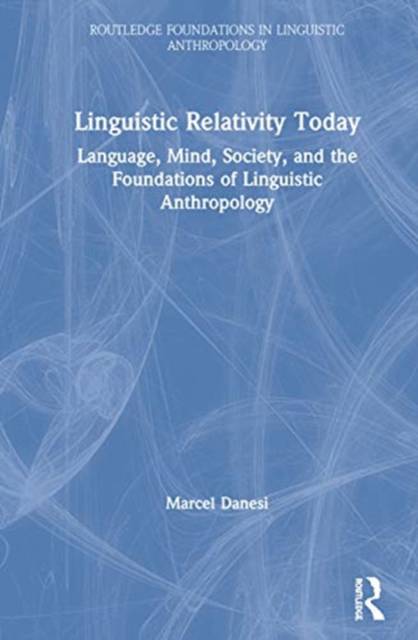
- Afhalen na 1 uur in een winkel met voorraad
- Gratis thuislevering in België vanaf € 30
- Ruim aanbod met 7 miljoen producten
- Afhalen na 1 uur in een winkel met voorraad
- Gratis thuislevering in België vanaf € 30
- Ruim aanbod met 7 miljoen producten
Linguistic Relativity Today
Language, Mind, Society, and the Foundations of Linguistic Anthropology
Marcel DanesiOmschrijving
This is the first textbook on the linguistic relativity hypothesis, presenting it in user-friendly language, yet analyzing all its premises in systematic ways. The hypothesis claims that there is an intrinsic interconnection between thought, language, and society. All technical terms are explained and a glossary is provided at the back of the volume. The book looks at the history and different versions of the hypothesis over the centuries, including the research paradigms and critiques that it has generated. It also describes and analyzes the relevant research designed to test its validity in various domains of language structure and use, from grammar and discourse to artificial languages and in nonverbal semiotic systems as well. Overall, this book aims to present a comprehensive overview of the hypothesis and its supporting research in a textbook fashion, with pedagogical activities in each chapter, including questions for discussion and practical exercises on specific notions associated with the hypothesis. The book also discusses the hypothesis as a foundational notion for the establishment of linguistic anthropology as a major branch of linguistics. This essential course text inspires creative, informed dialogue and debate for students of anthropology, linguistics, cultural studies, cognitive science, and psychology.
Specificaties
Betrokkenen
- Auteur(s):
- Uitgeverij:
Inhoud
- Aantal bladzijden:
- 160
- Taal:
- Engels
- Reeks:
Eigenschappen
- Productcode (EAN):
- 9780367431730
- Verschijningsdatum:
- 16/03/2021
- Uitvoering:
- Hardcover
- Formaat:
- Genaaid
- Afmetingen:
- 152 mm x 229 mm
- Gewicht:
- 4758 g

Alleen bij Standaard Boekhandel
Beoordelingen
We publiceren alleen reviews die voldoen aan de voorwaarden voor reviews. Bekijk onze voorwaarden voor reviews.











